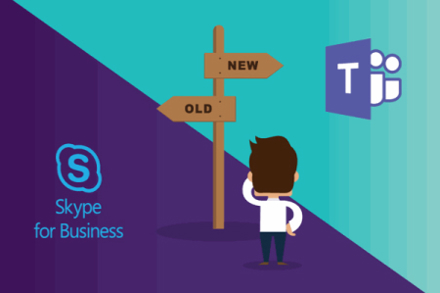In this blog post we’ll explore two of the most prominent barriers to cloud adoption and introduce some ways in which your business can work towards breaking these barriers down.
One of the biggest barriers to cloud adoption is a lack of knowledge and experience within individual businesses and in some cases, industries as a whole. For the most part, key business decision makers find it difficult to determine which business applications and data are most suited to the cloud environment. Couple this with the fact that many employees are resistant to change and the lack of agility within many larger companies for embracing new processes and you have a classic case of businesses putting off migrating to the cloud in favour of sticking with what they know.
That’s not where the list of barriers to cloud adoption ends though. There are also security concerns, compliance concerns, bandwidth concerns, cost issues, scheduling problems, control problems…sometimes it seems as though the list of reasons is endless.
In this blog post we’ll explore two of the most prominent barriers to cloud adoption and introduce some ways in which your business can work towards breaking these barriers down.
Number 1: the fear of poor security
When it comes to the cloud, questions around security never take long to be asked and that’s understandable. Security is a very big concern and it’s true that with public clouds especially, there can be additional security vulnerabilities to consider. However, there are security risks with any IT infrastructure and actually, it’s often the business basics like time, resource and expertise that can address these issues most effectively.
That means when moving to the cloud, ensure any providers you use are well staffed and well educated in what they’re doing – a good indicator of this is their industry accreditations, the size and scale of their other clients and of course, their service reviews and testimonials. Think about how much they’re charging for their services too, if it’s a bargain basement price, is it a bargain basement service?
Check the information they make available about what they do, read the terms and conditions and don’t by shy about questioning their best practices. Once you have the right provider, it will also free up your own, in-house IT experts to spend more time checking and overseeing security as opposed to getting bogged down in the day to day set up work that IT demands and that’s an added benefit of using the cloud that’s also well worth remembering.
Number 2: worries about uptime and performance
If your site goes down, even for just a matter of minutes, it can have a very real and very serious impact on your brand reputation, your search engine optimisation and most critical of all, your revenue, so it’s no surprise it’s a big concern for many businesses considering the cloud. However, typically problems with performance and uptime are the fault of your own IT infrastructure and applications, not the cloud provider themselves.
That means you need to consider your IT infrastructure as well as your cloud provider or solution to ensure your have the speed, agility and reliability your business needs. Investing in your own infrastructure and applications makes sense in a cloud environment too, as this is where your businesses retains full and direct control. You need to optimise your network if your cloud is going to be high performing and secure.
If you have fears and concerns around cloud computing, or just questions you’d like answering, then please get in touch with our team today and we’ll be happy to help.
Dynamic Insights & Advice

Dynamic Networks Group Continues Its Expansion
Dynamic Networks Group continues its expansion with the acquisition of Peak Support Services Ltd, a Derbyshire based Cloud MSP.

Dynamic Networks completes a Management Buyout and commences its acquisition strategy
David Smith (CEO) and Gareth Leece (COO) have successfully completed an MBO of Dynamic Networks, working with Paul Landsman of Kingland Capital. The MBO provides for a simplification of the Board structure to allow for its continued accelerated growth strategy.

10 reasons to archive your business emails in the cloud
For most organisations, email has become an essential part of daily workflow and communications. However, many businesses are unaware of the importance of archiving their emails and having an email retention strategy.

Planning a successful migration to the cloud
Moving to the cloud comes with multiple benefits. For most businesses, it usually means reducing running costs, faster modernisation capabilities and increased security.

2021 IT trends your business should be thinking about
Here are our top IT trends and predictions your business should be thinking about now to prepare for 2021.

The end of Skype for Business is closer than you think...
Microsoft have recently announced that Skype for Business Online will be retiring on July 31, 2021.


